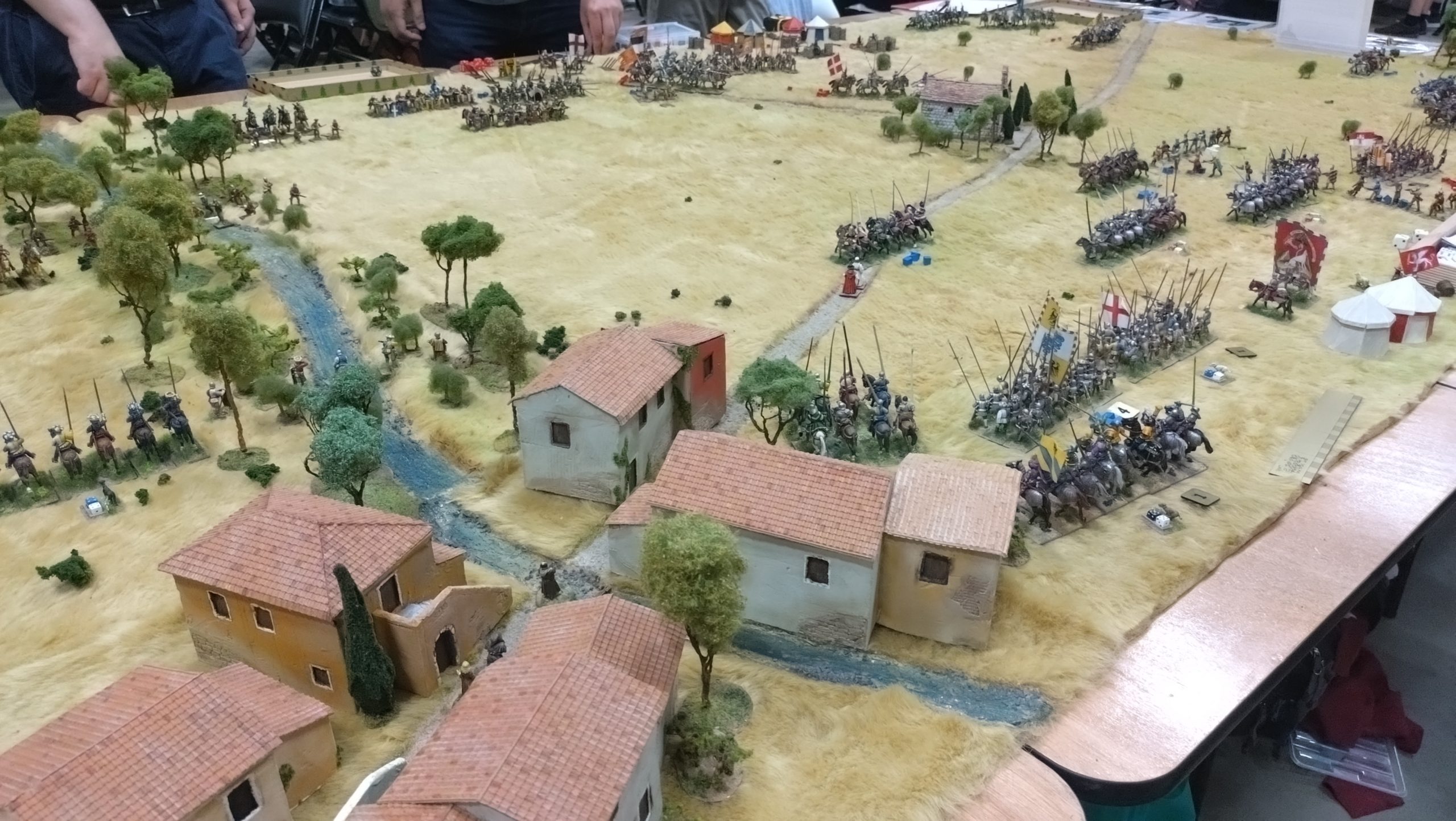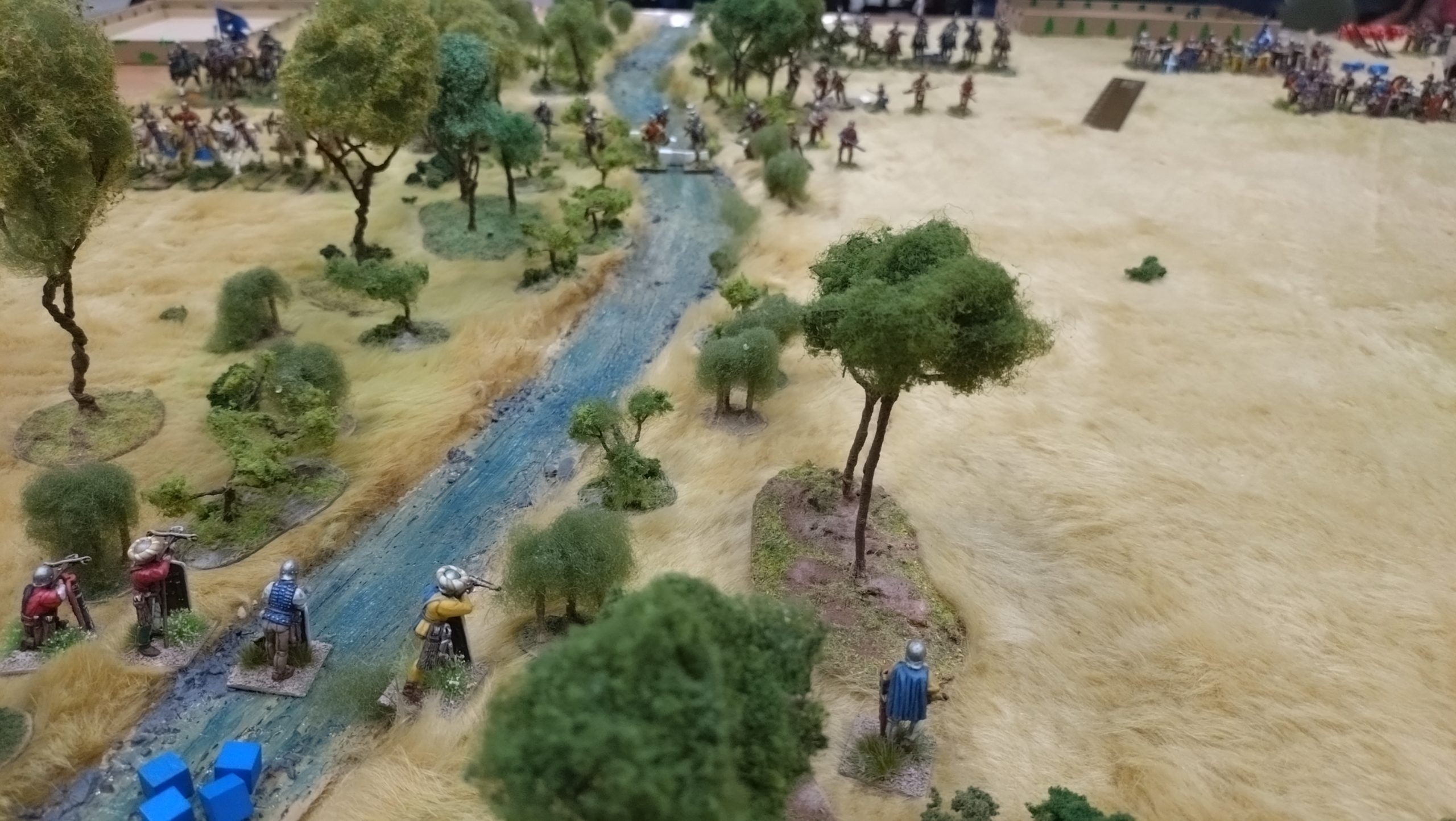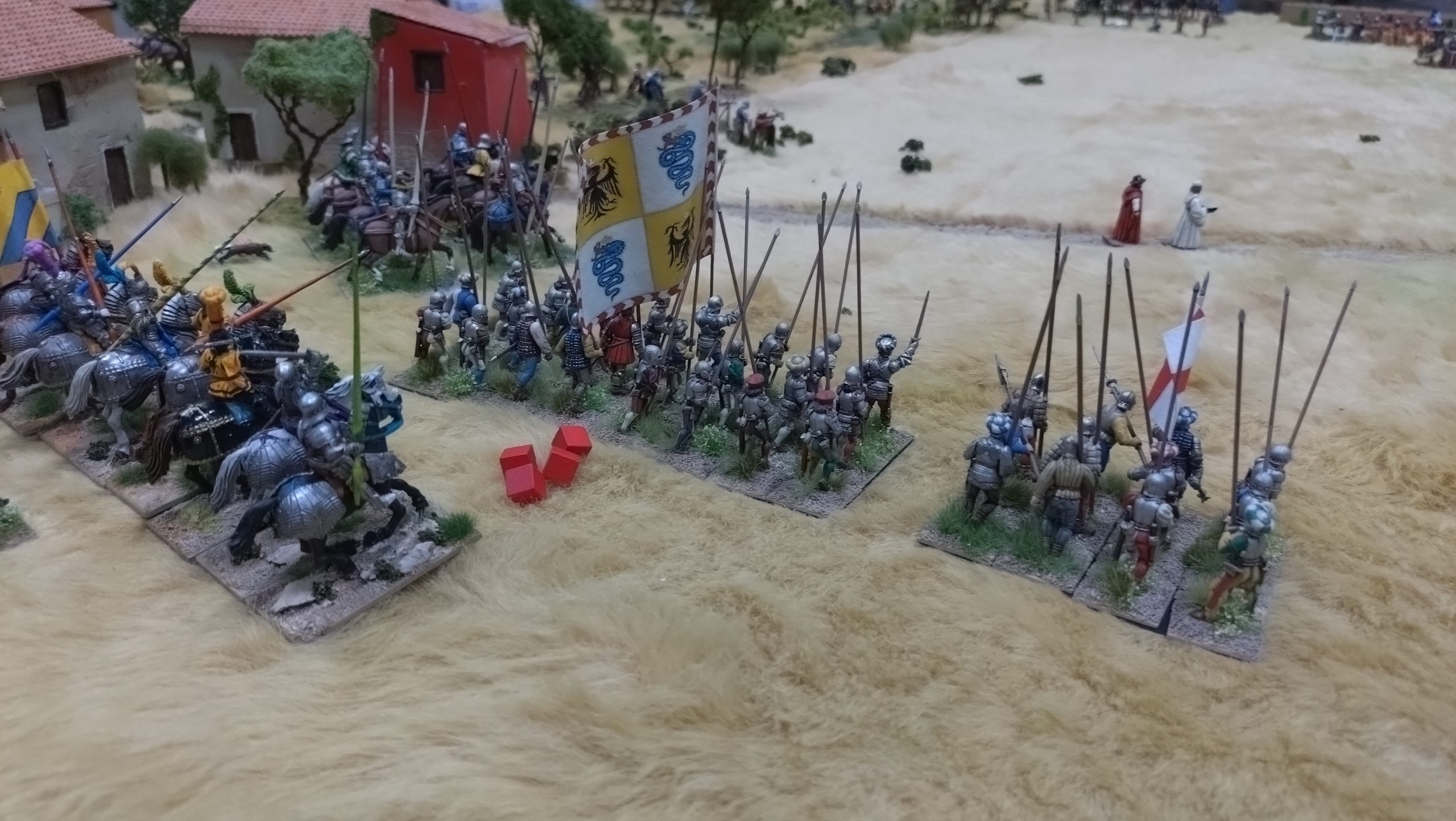Präsentiert von Hannu Uusitalo, Kim Paqvalin, Mikko Vasko, Janne Niinivaara, Tiinu Vimpari
Battle of Molinella 1467
The Battle of Molinella was fought between the villages of Riccardina and Molinella along the river Idice. The area is located near the city of Bologna. In the 15th century, the battlefields were dominated by mercenary armies led by condottieri. The battle of Molinella was one of the first in Italy where the use of firearms played a significant role.
In the battle, the forces of Venice fought against an alliance formed by Florence. The Venetian army was led by condottiere Bartolomeo Colleoni and the core of the army consisted of Colleon’s own troops. The campaign was part of his personal plan to weaken Milan. Colleoni was on the Venetian payroll, but he was allowed to use his troops to manage his own affairs in peacetime. In addition to Colleon’s own troops, Venice’s own troops, Ferrara’s troops, and some Florentine rebel troops fought on his side.
Florence’s own forces were significantly smaller than Colleon’s, but as a wealthy city-state they had managed to assemble an alliance for protection. Condottiere Federico da Montefeltro was hired to lead the coalition forces, and troops from Milan and Naples fought in the coalition ranks.
Useless Cowards
The Useless Cowards rules are made for battles of 14th and 15th century Italy, but can also be used for other battles of the same era. The name of the game is based on Machiavelli’s view of the usefulness of mercenaries.
The game is based on activating units in a random order. On its turn, a unit can choose one of four actions: move, charge, shoot or speech. Units have command points, which can be used to boost a selected action. The amount of command points depends on the level of the unit and the recovery of spent points depends on the level of the unit captain. The commander of the entire army has 0-3 additional activations, depending on his abilities, which he can use as additional activations for chosen troops.
In a typical condottieri battle casualties were quite low, so morale level and cohesion have a bigger role in the battle. Each time a unit routs from a combat the army suffers morale losses and the army loses a battle after it morale has dropped too low.




